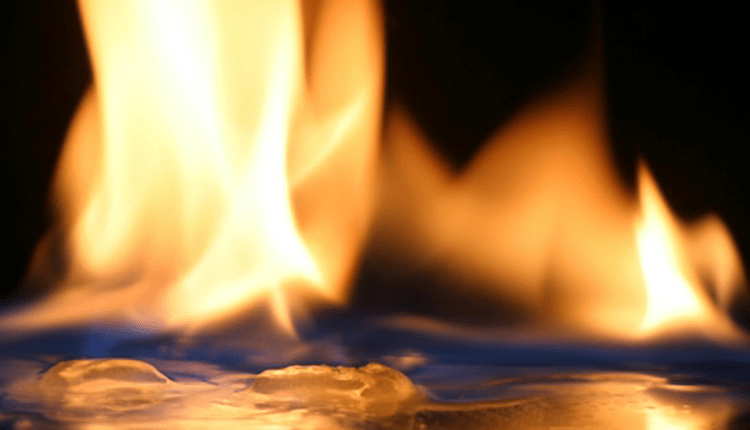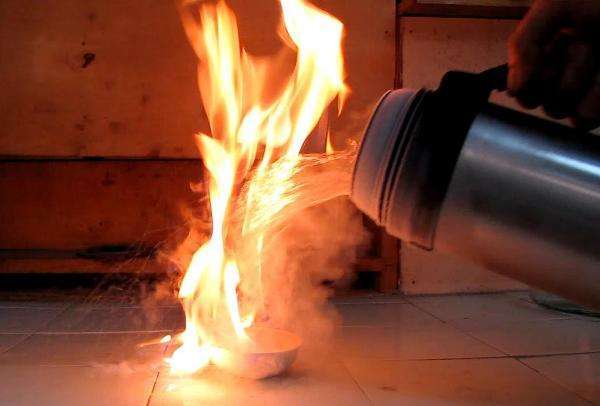It would seem that gasoline is the most common substance that motorists encounter daily. But what are the main properties of this product of the petrochemical industry and can gasoline burn?
Can gasoline burn
If you are wondering if gasoline burns, then the answer to this question is definitely yes. After all, it is thanks to its combustion that the car is put into action and that is why it is the most common automotive fuel.
To be more precise, it is not the pure product of the oil industry that ignites, but its evaporation. In the case of a car, the process is as follows:
- Liquid fuel forms vapors in the tank, which are mixed with air by means of a carburetor.
- A mixture of air and gasoline vapor enters the cylinder, where the piston exerts pressure on it.
- This pressure provokes a slight explosion, which leads to the formation of gas.
- The spark from the spark plug ignites the fuel.
- By applying pressure, the gas inside the cylinder causes the piston connected to the crank to move.
- So each push caused by the combustion of fuel causes the wheels of the car to rotate.
Thus, thanks to the process of emission and combustion of gasoline vapors, the car sets in motion.
Burning conditions
Does gasoline burn without oxygen and air? Here it is worth considering the combustion process itself in principle. For ignition to occur, the following three conditions must be present:
- combustible substance. That is, something that can catch fire when heated to a certain temperature, for example, a dry branch or flammable vapors.
- Oxidizer. Usually it is oxygen, which is more than enough under the conditions familiar to us on Earth.
- Source of ignition. That is, with the help of which a combustible substance can be heated to the desired temperature at which it can burn. It can be a lighter, a match, sometimes an electric spark or energy generated by friction is enough. With the help of the latter, they make fire without having matches or a lighter at hand.
That is, it follows from this that in the absence of oxygen, no fuel can burn. It is this property that is often used in firefighting, when the ignited area is thrown, for example, with sand, which blocks the access of oxygen, thereby stopping the combustion reaction.
Does gasoline burn in the snow
On the eve of winter, many romantically inclined persons were interested in whether gasoline burns if it is poured onto snow and set on fire. After all, if yes, it will be possible to write a pleasant wish to a loved one very beautifully and effectively. The answer to this question is yes. On the snow, the fuel will be able to burn, and the higher the air temperature, the better this process will take place, since the vapors necessary for combustion will be released more actively.
But, now knowing whether gasoline burns in the snow, do not rush to organize a fire show. First of all, take care of safety. For this:
- Carefully clear the required area.
- Make sure the fire does not cause any damage and cannot spread to nearby trees or vehicles.
- Just in case, keep a bucket of sand with you, which, in which case, you can put out the fire.
Also, do not forget that gasoline vapors are extremely toxic, and inhaling them is dangerous for your health. In addition, gasoline burns out very quickly, so the spectacle will not last long.
A simpler, safer and, moreover, burning much longer alternative can be ordinary candles, for which you will have to make small lampshades from plastic bottles so that the wind that suddenly comes in cannot extinguish them. Of course, it will take more time for this, but the effect will be achieved even better – due to a longer burning time.

